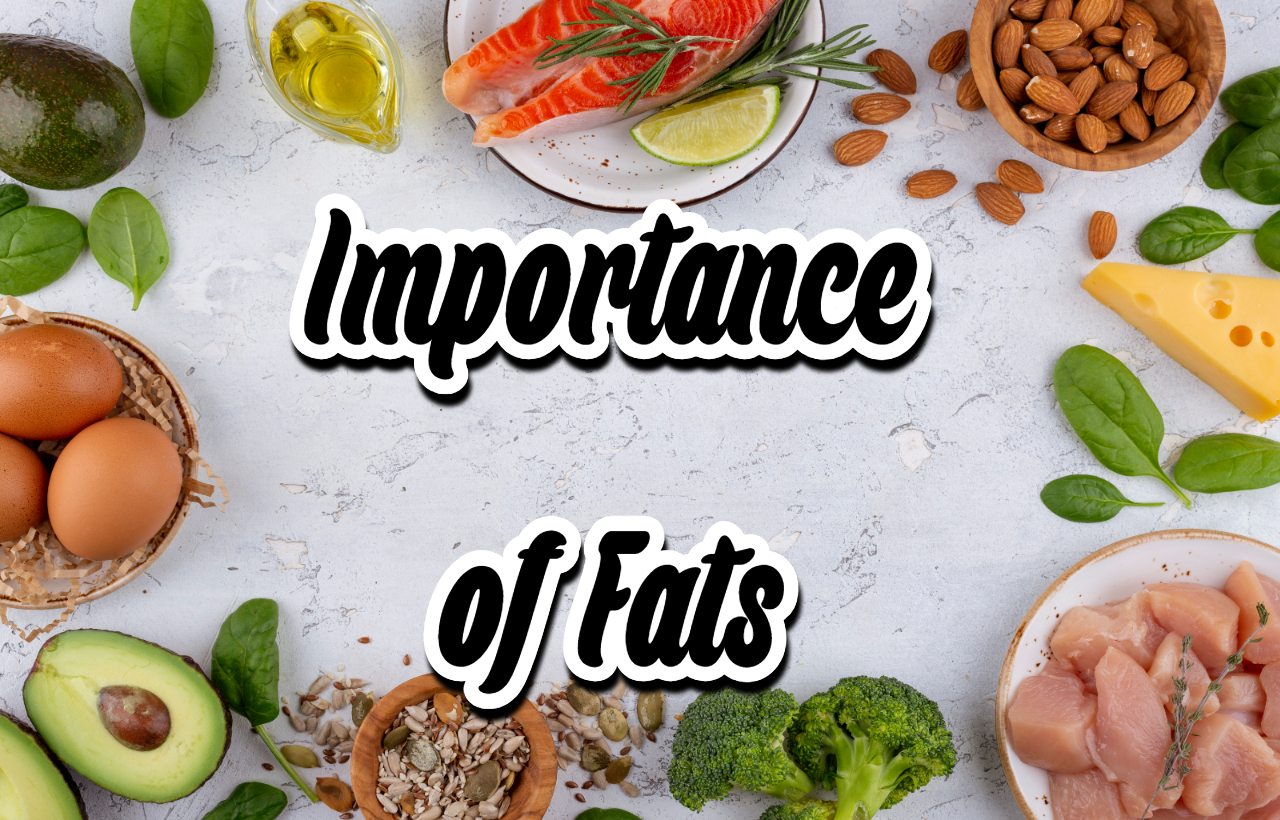Fats are an essential part of our diet and play a significant role in maintaining overall health. Despite their bad reputation in some health and fitness circles, fats are crucial for many bodily functions. Understanding what are fats in nutrition and their role can help us make better dietary choices. This blog will explore the types of fats in the body, their functions, and how to incorporate healthy fat foods into your diet while addressing common misconceptions.
Fats Definition
Fats, also known as lipids, are macronutrients that provide energy and support several vital processes in the body. They are made up of carbon, hydrogen, and oxygen and are more energy-dense than proteins and carbohydrates, delivering 9 calories per gram.
4 Important Functions of Fats
Fats are not just energy reserves but are also necessary for various physiological functions. Below are 4 important functions of fats:
- Energy Storage and Supply:
Fats are the body’s most concentrated energy source, providing long-term energy storage for endurance and survival. - Insulation and Protection:
They help maintain body temperature and act as cushions for vital organs like the heart, liver, and kidneys. - Absorption of Vitamins:
Certain vitamins, such as A, D, E, and K, are fat-soluble and require fats for absorption. - Cellular Functions:
Fats are a vital component of cell membranes, aiding in cell signaling and structural integrity.
Types of Fats in Body
The types of fats in the body include:
| Type of Fat | Description | Examples |
|---|---|---|
| Saturated Fats | Solid at room temperature, found in animal products. | Butter, cheese, fatty meats. |
| Unsaturated Fats | Liquid at room temperature, heart-healthy. | Olive oil, nuts, seeds. |
| Trans Fats | Industrially produced, harmful to health. | Margarine, packaged snacks. |
| Essential Fatty Acids | Omega-3 and Omega-6, crucial for brain health. | Fish, flaxseeds, walnuts. |
What Are Fats in Nutrition?
In nutritional terms, fats are one of the three macronutrients alongside carbohydrates and proteins. They serve multiple purposes, including energy provision, hormone production, and supporting brain function. Fats also influence satiety, helping you feel full for longer.
Fat Foods and Their Sources
Here are some common fats food sources:
| Category | Examples of Fats | Nutritional Benefits |
|---|---|---|
| Healthy Fats | Avocado, nuts, olive oil, salmon | Boost heart health and reduce inflammation. |
| Saturated Fats | Butter, coconut oil, cheese | Provide energy but should be consumed moderately. |
| Trans Fats | Pastries, fried foods | Increase bad cholesterol levels (avoid). |
7 Functions of Fat
- Energy Storage: Fats are a dense source of energy, stored for later use.
- Protection: Cushions vital organs.
- Insulation: Maintains body temperature.
- Vitamin Absorption: Facilitates absorption of fat-soluble vitamins.
- Hormonal Function: Regulates production of essential hormones.
- Cellular Health: Maintains the integrity of cell membranes.
- Brain Development: Essential for cognitive health and neurological functions.

Why Are Fats Important?
Fats are integral to overall health for various reasons, including hormone production, nerve function, and maintaining healthy skin. Eliminating fats completely from your diet can lead to deficiencies in essential fatty acids and fat-soluble vitamins, disrupting normal body functions.
Fats vs. Carbohydrates
While both fats and carbohydrates provide energy, they do so differently. Carbohydrates are the body’s primary energy source for short-term needs, while fats provide sustained energy for prolonged activities. Here’s a quick comparison:
| Aspect | Carbohydrates | Fats |
|---|---|---|
| Energy Yield | 4 calories per gram | 9 calories per gram |
| Storage | Stored as glycogen in muscles/liver | Stored in adipose tissue (body fat) |
| Digestion | Digested quickly for immediate use | Digested slowly, providing long-term energy |
Common Fat Foods to Include in Your Diet
Incorporating healthy fat foods into your meals can improve your overall health. Some great options are:
- Avocados: Rich in monounsaturated fats.
- Fatty Fish: A good source of Omega-3 fatty acids.
- Nuts and Seeds: Packed with unsaturated fats and protein.
- Olive Oil: Heart-healthy and versatile in cooking.
- Dark Chocolate: Contains healthy fats and antioxidants.
Examples of Fats to Avoid
- Fried and processed foods high in trans fats.
- Packaged snacks like chips and cookies.
- Margarine and hydrogenated oils.
FAQs: Understanding Fats
1. What are fats in nutrition?
Fats are macronutrients essential for energy, hormone production, and nutrient absorption.
2. Why are fats important?
Fats play a role in maintaining body temperature, protecting organs, and supporting brain and cellular health.
3. What are carbohydrates, and how do they compare to fats?
Carbohydrates are another macronutrient providing quick energy. Unlike fats, they are stored as glycogen and used for short-term energy.
4. What are the best fats food sources?
Healthy fats include avocados, nuts, seeds, olive oil, and fatty fish.
5. What are the 4 important functions of fats?
- Energy supply
- Insulation
- Vitamin absorption
- Cellular health
6. What are the 7 functions of fat?
Beyond energy, fats help with protection, insulation, hormone production, and more (listed above).
7. What are examples of fats to avoid?
Trans fats from fried foods and processed snacks.
Conclusion
Understanding the importance of fats in our body is key to maintaining a balanced diet. While fats have been misunderstood, they are essential for various physiological processes, from energy storage to brain function. By choosing the right fats food sources, you can enjoy their health benefits while avoiding the risks associated with unhealthy fats. Incorporate healthy fats into your meals, and your body will thank you!


